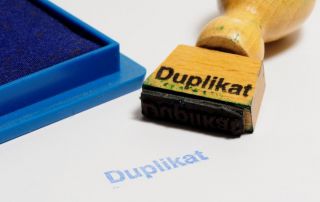Claude AI Review: The Silent Giant Challenging ChatGPT
Our review of Anthropic’s AI family – from Sonnet to Opus.
In the rapidly evolving world of artificial intelligence, one name has established itself as a serious competitor to industry leader ChatGPT: Claude AI. Developed by the AI security company Anthropic, Claude has earned a reputation as a powerful, sophisticated, and often more secure AI assistant. But how does the model family – especially the Claude 3 generation and its successors – perform in direct practical testing?
We examined the various versions of Claude, analyzed their strengths and weaknesses, and pitted them against their strongest competitors.

The Claude family: The right model for every task
Anthropic takes a tiered approach, offering different models tailored to various needs:
Claude 3 Haiku (and 4.5 Haiku): The fastest and most cost-effective model. It’s ideal for quick queries, customer service bots, and simple content summaries where speed is critical.
Claude 3 Sonnet (and 3.5/3.7 Sonnet): The all-around model. It offers an excellent balance between intelligence and speed. Sonnet is the first choice for most enterprise applications, including data analytics, content creation, and coding. The newer Claude 3.5 Sonnet has even outperformed the top-of-the-line Opus model in many benchmarks and is considered one of the most powerful models on the market.
Claude 3 Opus: The flagship model. Opus is designed for highly complex tasks that require deep logical reasoning, sophisticated analysis, and peak creative performance. It is a direct competitor to models like GPT-4o.
Strengths: Where Claude truly shines
The test revealed several areas where Claude not only holds its own but often surpasses the competition:
Processing massive amounts of data (context window): This is Claude’s forte. All Claude 3 models feature a large context window (up to 200,000 tokens, equivalent to hundreds of pages of text). In our tests, we were able to easily upload extensive PDF documents, research papers, or entire codebases and ask Claude precise questions, request summaries, or perform analyses. Claude 3.5 Sonnet handles these “needle in a haystack” tasks with impressive accuracy.
Logical reasoning and analysis: When it comes to complex analysis and reasoning tasks, Claude, especially Opus and 3.5 Sonnet, demonstrates remarkable depth. The answers are often more nuanced, better structured, and less like memorized snippets than those of some competitors.
Logical reasoning and analysis: Natural Speech and “Fewer Hallucinations”: User reports and our tests confirm that Claude tends to sound more “human” and natural. Particularly noticeable is its reduced tendency to “hallucinations”—that is, to fabricate facts. Claude is more likely to admit not knowing something than to confidently present false information. This is a direct result of Anthropic’s focus on constitutional AI security.
Coding Performance: Claude has proven to be an excellent programming assistant. In numerous benchmarks and practical tests, Claude 3.5 Sonnet even outperforms GPT-40 in programming tasks. It understands complex code structures, can find errors, and suggest efficient solutions.
Image Analysis: Similar to its competitors, Claude can analyze images. Its ability to extract and interpret context from graphics, diagrams, or photos is at a very high level.
Weaknesses: Where there is still room for improvement
Despite its impressive performance, Claude isn’t perfect:
Creativity and Spontaneity: While Claude excels at analytical and text-based tasks, ChatGPT is often perceived as more creative and playful. In pure brainstorming sessions or when writing highly elaborate creative texts, Claude can sometimes appear a bit more reserved or formal.
Up-to-dateness in Niche Topics: Although the models possess broad knowledge, they may not be quite as up-to-date as competitors in very new or specialized niche technologies, especially those that are potentially trained more on real-time web data.
User Interface: This is subjective, but some users find ChatGPT’s web interface more intuitive or user-friendly than that of claude.ai.
Claude vs. ChatGPT (GPT-4o)
The battle of the titans is close. Here’s a direct comparison of the top models:
| feature | Claude (insb. 3.5 Sonnet / Opus) | ChatGPT (GPT-4o) |
|---|---|---|
| Analysis & large documents | Superior. Best context window and high precision in analysis. | Very good, but often inferior in direct comparison with huge amounts of text. |
| Logical thinking | On par/Superior. Often more nuanced and deeper answers. | Excellent, but tends to give confident, incorrect answers. |
| Coding | On par/Superior. Claude 3.5 Sonnet is currently often considered leading. | Very strong, especially through the integration of tools. |
| Creativity & Everyday Chat | Good, but often more formal. | Superior. Often seems more spontaneous, creative, and “talkative”. |
| Facts & Security | Superior results. Lower hallucination rate, more “honest” answers. | Good, but more prone to fabricating facts. |
| speed | Very fast (especially haiku/sonnet). | Very fast (GPT-4o has caught up considerably here). |
Access and prices
Claude AI is accessible through various channels:
- Free Version: You can create a free account via the website claude.ai. This typically provides access to Claude 3.5 Sonnet, but comes with usage limits.
- Claude Pro: For approximately US$20 (around €18-20) per month, you receive significantly higher usage limits and prioritized access to the most powerful models, such as Opus.
- API: Developers can access all models via an API. Pricing is tiered: Haiku is extremely affordable, Sonnet is mid-range, and Opus is the most expensive model.
Conclusion: An impressive alternative with its own strengths
- Claude AI is far more than just another ChatGPT clone. Anthropic has created an AI assistant that excels in crucial professional and analytical areas.
- Claude AI is far more than just another ChatGPT clone. Anthropic has created an AI assistant that has a clear edge in key professional and analytical areas.
- Claude AI is far more than just another ChatGPT clone. Anthropic has created an AI assistant that excels in crucial professional and analytical areas.
Who is Claude AI the best choice for?
- Professionals and Developers: Anyone who regularly works with large documents (contracts, reports, code) will love Claude’s analytical capabilities.
- Academics and Researchers: Its ability to analyze research and understand complex relationships is unmatched.
- Users who value accuracy: If you’re looking for an AI that is less prone to “hallucinating” and more fact-based, Claude is the right choice.
Who might be better off with ChatGPT?
- Creative Professionals and Marketers: If you’re looking for an agile partner for brainstorming, creating social media posts, or creative writing, ChatGPT often offers a more dynamic and dynamic experience. Partner.
Ultimately, the choice often comes down to personal preference and the specific use case. However, Claude’s rise impressively demonstrates that competition is good for business, and OpenAI is no longer alone at the top.
Beliebte Beiträge
Warum dein Excel-Kurs Zeitverschwendung ist – was du wirklich lernen solltest!
Hand aufs Herz: Wann hast du zuletzt eine komplexe Excel-Formel ohne Googeln getippt? Eben. KI schreibt heute den Code für dich. Erfahre, warum klassische Excel-Trainings veraltet sind und welche 3 modernen Skills deinen Marktwert im Büro jetzt massiv steigern.
Microsoft Loop in Teams: The revolution of your notes?
What exactly are these Loop components in Microsoft Teams? We'll show you how these "living mini-documents" can accelerate your teamwork. From dynamic agendas to shared, real-time checklists – discover practical use cases for your everyday work.
Career booster 2026: These Microsoft Office skills will take you further!
A new year, new career opportunities! But which Office skills will really be in demand in 2026? "Skilled use" is no longer enough. We'll show you today's must-haves – like advanced Excel, using AI in the office, and relevant certifications for your resume.
Excel Tutorial: How to quickly and safely remove duplicates
Duplicate entries in your Excel lists? This distorts your data. Our tutorial shows you, using a practical example, how to clean up your data in seconds with the "Remove Duplicates" function – whether you want to delete identical rows or just values in a column.
Dynamic ranges in Excel: OFFSET function
The OFFSET function in Excel creates a flexible reference. Instead of fixing =SUM(B5:B7), the function finds the range itself, e.g., for the "last 3 months". Ideal for dynamic charts or dashboards that grow automatically.
Mastering the INDIRECT function in Excel
The INDIRECT function in Excel converts text into a real reference. Instead of manually typing =January!E10, use =INDIRECT(A2 & "!E10"), where A2 contains 'January'. This allows you to easily create dynamic summaries for multiple worksheets.

































